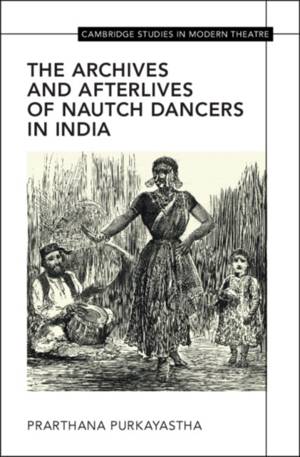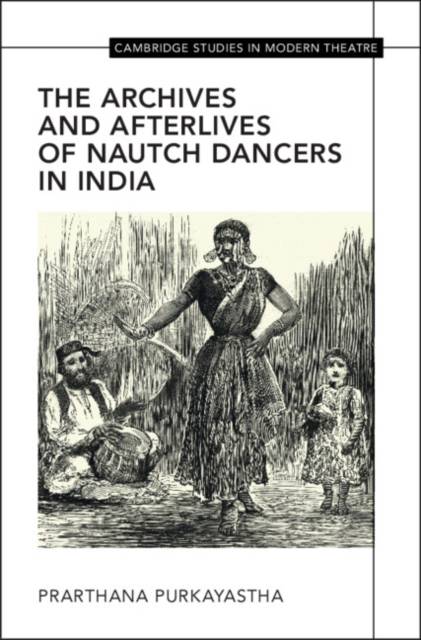
- Afhalen na 1 uur in een winkel met voorraad
- Gratis thuislevering in België vanaf € 30
- Ruim aanbod met 7 miljoen producten
- Afhalen na 1 uur in een winkel met voorraad
- Gratis thuislevering in België vanaf € 30
- Ruim aanbod met 7 miljoen producten
Zoeken
Omschrijving
In a time of colonial subjugation, subaltern, illicit and courtesan dancers in India radically disturbed racist, casteist and patriarchal regimes of thought. The criminalized 'nautch' dancer, vilified by both British colonialism and Indian nationalism, appears in this book across multiple locations, materials and timelines: from colonial human exhibits in London to open-air concerts in Kolkata, from heritage Bengali bazaar art to cheap matchbox labels and frayed scrapbooks, and from the late nineteenth century to our world today. Combining historiography and archival research, close reading of dancing bodies in visual culture, analysis of gestures absent and present, and performative writing, Prarthana Purkayastha brings to light rare materials on nautch women, real and fictional outlawed dancers, courtesans and sex-workers from India. Simultaneously, she decolonises existing ontologies of dance and performance as disappearance and advocates for the restless remains of nautch in animating urgent debates on race, caste, gender and sexuality today.
Specificaties
Betrokkenen
- Auteur(s):
- Uitgeverij:
Inhoud
- Aantal bladzijden:
- 226
- Taal:
- Engels
- Reeks:
Eigenschappen
- Productcode (EAN):
- 9781009396868
- Verschijningsdatum:
- 13/11/2025
- Uitvoering:
- Hardcover
- Formaat:
- Genaaid
- Afmetingen:
- 152 mm x 229 mm
- Gewicht:
- 467 g

Alleen bij Standaard Boekhandel
+ 374 punten op je klantenkaart van Standaard Boekhandel
Beoordelingen
We publiceren alleen reviews die voldoen aan de voorwaarden voor reviews. Bekijk onze voorwaarden voor reviews.







